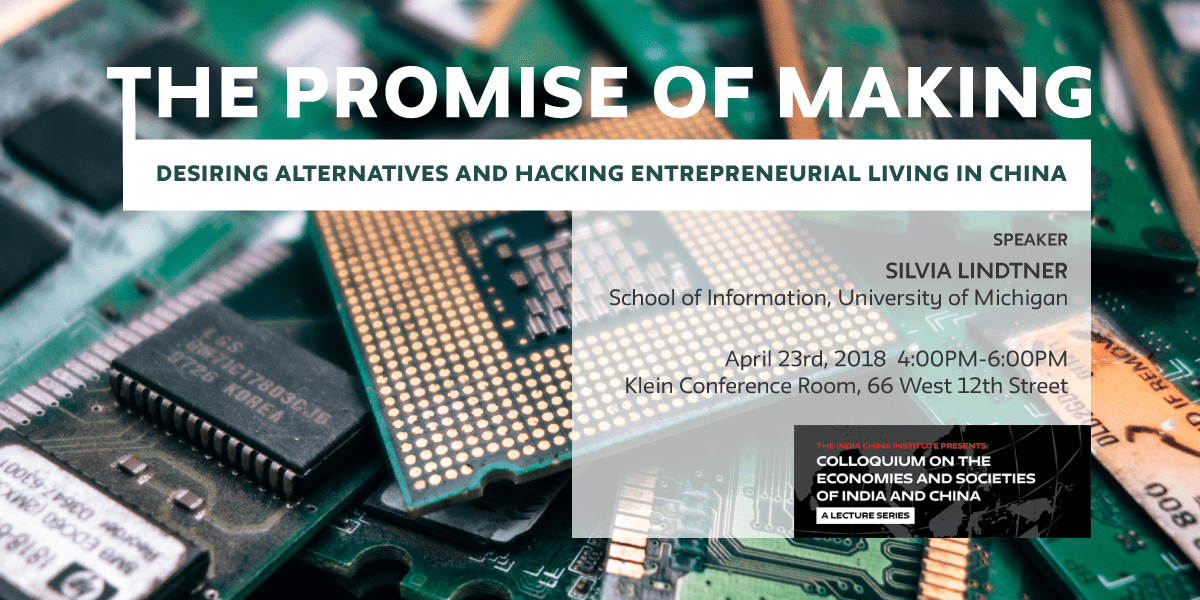
The Promise of Making: Desiring Alternatives and Hacking Entrepreneurial Living in China
April 23, 2018 , 4:00 pm – 6:00 pm

Since 2014, a series of Western media outlets from the Wired UK over the Economist to Forbes has begun to celebrate the city of Shenzhen in the South of China as a rising hub of innovation, a so-called “Hollywood for Makers” and “Silicon Valley of Hardware.” These media stories took up an idea that open source hardware advocates had been promoting for several years: that the city of Shenzhen had become crucial for the realization of one of the key promises of the maker movement, i.e. to prototype concrete alternatives to the pitfalls of the information society and contemporary capitalism. Just a couple years earlier, Shenzhen was largely known as a place of copycats and fakes that lacked creativity where ideas created elsewhere were simply executed and mass produced. What happened within the timespan of only a few years that changed Shenzhen’s image from demonstrating China’s continuous lag in technology innovation towards a place where alternatives to neoliberal capitalism could be prototyped?
In this talk, Silvia Lindtner presents excerpts from her forthcoming book “The Promise of Making”, unpacking the historical contingencies of this transformation of Shenzhen, and with it China, in the global tech imaginary. Drawing from more than seven years of ethnographic research, she shows how the displacement of techno-optimistic onto Shenzhen unfolded through and alongside the emergence of “making” as a mode of intervention in the status-quo by hacking not only machines but also markets and work itself. Shenzhen, as the speaker shows, was rendered by open source hardware advocates, venture capitalists, avant-garde designers, and Chinese politicians and state actors alike as a laboratory to prototype what she calls “entrepreneurial living,” i.e. a naturalization of experimentation as a mode of “living on” amidst a pervasive economization of life. While making reformulated a key neoliberal logic of self-economization as a story of empowerment by promising to include ever more people in its call for self-transformation into human capital, Shenzhen came to be seen as the place to accomplish this upgrade of the self and to regain a sense of control amidst anxieties over the economic and environmental crisis.
Silvia Lindtner is an assistant professor at the University of Michigan in the School of Information, with a courtesy appointment in the Penny W. Stamps School of Art and Design. Lindtner’s research and teaching interests include innovation and technology entrepreneurship, making and hacking cultures, shifts in digital work, labor, industry, policy, and governance. This work unfolds through a deep engagement with issues of gender, inequality, and enactments of masculinity in engineering and computer science fields, politics and transnational imaginaries of design, contemporary political economy, and processes of economization. Lindtner draws from more than eight years of multi-sited ethnographic research, with a particular focus on China’s shifting role in transnational and global tech production alongside research alongside research in the United States, Taiwan, and Africa.
LIMITED SEATING
